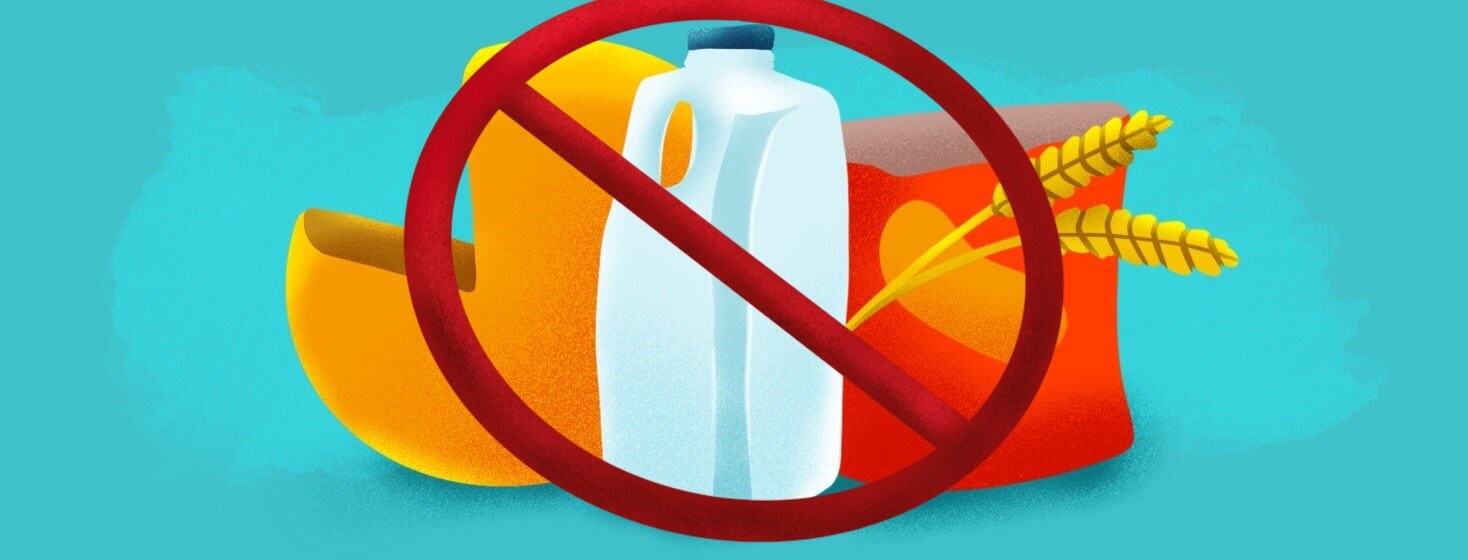Study: Guidance On Helpful Diet Changes For Endometriosis
A doctor once told me that people with endometriosis often have more gastrointestinal problems than gynecologic ones. That’s definitely the case with me. And changing my diet has been the single most effective way to ease my endometriosis symptoms.
I settled on a pretty complex dietary plan. It's plant-based, anti-inflammatory, gluten-free, no-dairy, no-meat, and low in added sugar. I got here mostly on my own, piecing together tips from a couple gastroenterologists and a clinical dietitian along they way.
A new systematic review published in the journal Reproductive Sciences hopes to make that journey a little easier for future endo warriors. Researchers from University Hospital and University of Bern, and Cantonal Hospital — both in Switzerland — reviewed a bunch of animal and human studies that already exist. They hope this new collection of data can shed some light on evidence-based dietary approaches doctors can offer to help endo patients.1
Here’s a rundown of what they found.1
Some vitamins and minerals may help
One study showed that people who took vitamin E and C supplements for two months had lower inflammatory markers in their blood and peritoneal fluid — that’s the liquid that coats the organs in your abdominal cavity. Another found that fish oil eased symptoms in some people.
The vitamin D picture is less clear. There's not enough evidence to show that extra doses will help you feel better unless you have a deficiency. But a lot of people I know with endometriosis or inflammatory problems, myself included, have chronically low vitamin D. I feel a lot less fatigue and bone pain when I keep up my daily supplement.
The Mediterranean Diet is worth a look
This is a healthy eating plan that focuses on plant-based foods, olive oil, and fish. All three are known to have anti-inflammatory effects on the body.
The study found that the Mediterranean diet might help your symptoms in the following ways:
- Extra virgin olive oil includes a substance that acts kind of like natural ibuprofen.
- The extra fiber from fruits and vegetables may help with constipation.
- High-magnesium foods may help balance your calcium levels and relax your uterus.
Excluding certain food groups may help
Here’s a look at three plans they narrowed-in on:
- Low-FODMAP. FODMAPs are carbohydrates that exist in things like fruits, vegetables, dairy, sugar, and artificial sweeteners. Certain high-FODMAP foods, even when they’re healthy, can cause a lot of gas and bloating in people with endo and irritable bowel syndrome. The list of high- and low-FODMAP foods is way too long to get into here. I suggest you talk to a dietitian about how to safely try this short-term elimination diet. (I follow this plan, and it’s been a gamechanger. You can read more my experience.)
- Gluten-free. Studies show many people with endometriosis who go gluten-free, including myself, report less overall pain. It also greatly reduced my joint issues, brain fog, and migraines. (The low-FODMAP diet is essentially gluten-free. Though, it does leave long-fermented sourdough bread on the menu.)
- Low-nickel. This is an element found in metals, like jewelry. But it can also show up in certain foods. Compared to the general population, people with endometriosis are more likely to have a nickel allergy.2 You may get symptoms such as itchy skin or redness, which is also called dermatitis or eczema. I’ve never had a test done, but I should probably bring it up with my allergist; I sometimes get weird skin rashes when I eat. And I've never been able to wear earrings without my lobes reddening or swelling up.
- High-nickel ingredients include all kinds of things, including whole wheat, oats, chocolate, red wine, beer, fish, sunflower seeds, peanuts, and even baking powder.3 The list isn’t intuitive, so I’d talk to your doctor about it if you want to know more.
Seek medical guidance for major diet changes
Eliminating certain food groups has really helped me. But I did so with the guidance of a clinical dietitian and my GP. I've asked them to do annual bloodwork to make sure my vitamin and mineral levels are where they should be. And they give me the OK on which supplements to take — and how much — if I get low in something. So far, I only need to take a daily vitamin B12 and D.
Experts don’t know the long-term safety of certain eating plans, including the low-FODMAP and low-nickel diets. Always talk to your doctor about what’s safe for you.

Join the conversation